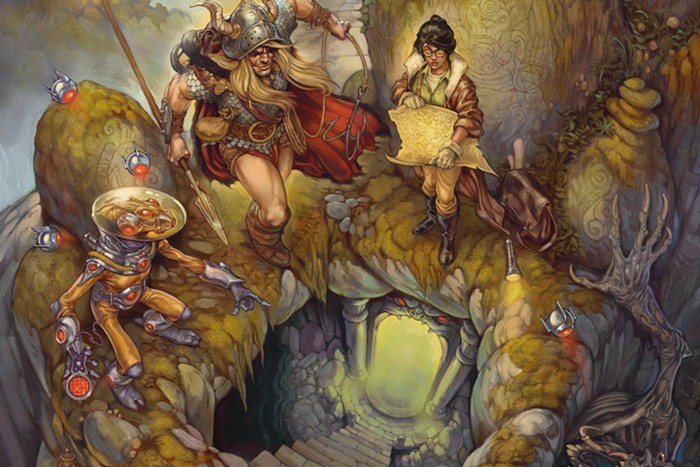The only thing you need to know about poet Mary Jo Bang's translation of Dante Alighieri's Inferno (Graywolf Press, $20) is how readable the thing is. To compare, here's a passage from the opening canto in Ernest Risdale Ellaby's 1874 translation, the first edition that comes up on a Google Book search for Dante's Inferno in English:
Why lingerest thou where groveling cares annoy?
What hinders thee to scale the beauteous mountain,
Which is the source and giver of all joy?
It's dense and serious, but sticky. That "groveling cares annoy" is awkwardly internecine, and the "what hinders thee" also momentarily staggers your approach to the mountain, which is, unspecifically, "beauteous." Have you ever seen a mountain you would consider unbeauteous? Now, take that same passage from Bang's translation:
But you, why return to what made you unhappy?
Why not climb the meringue-pie mountain ahead of you?
It's the ultimate end, and means of all pleasure.
It's simple and direct, and it keeps the rhythm of the poem gallumphing through each word, propelling you forward. The first line is an obvious question that, when used on the right person at the right time, could rip the heart out of someone who's living a lie. The pinnacle of these three lines, of course, is the "meringue-pie mountain," a phrasing that certainly wouldn't have carried much meaning during Dante's time, but is wonderfully evocative to a contemporary reader. You can practically taste the dewy white clouds hugging the surface of that mountain, its gentle slope and generous views. One could argue that Ellaby seizes the lyrical edge to this line with "the source and giver of all joy," but Bang's "ultimate end" has more than one meaning—a life lived solely for pleasure is not, as a rule, a long one—and which adds an appropriate sense of dread to the passage. Bang's phrasing is simply much more fun to read.
This verse tour of hell features cameo appearances by Eric Cartman from South Park (he stands in for Ciacco, an Italian nickname that means "hog" or "glutton"), the song "Hotel California," and Donald Rumsfeld. The references, almost entirely replacing cultural references from Dante's time, never feel forced, as though delivered by a self- described "cool" teacher.
Bang smartly decorates her passage through hell with homages to countless other poets, too—the "grave cave" from Sylvia Plath's "Lady Lazarus" makes an appearance; Virgil beckons the narrator into hell with the line "Let us go then, you and I." These tributes could make for an entertaining game of literary Where's Waldo?, or you could get swept up in the language and then, after you've finished your visit with the devil, dip back into the notes for illumination. (If I could change one thing about this Inferno, I'd put all Bang's notes at the end, rather than inserting them between each and every canto, which displeasingly chops up the rhythm of the journey.)
All translation involves a little bit of murder and a little bit of resurrection, but Bang did something incredibly smart before she coaxed Dante's corpse to sit up and sing for us: She taught him how to talk like us. Hell is more appealing in the form of a mirror. ![]()



















